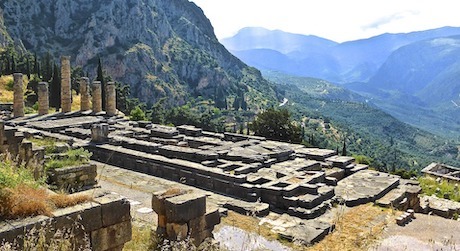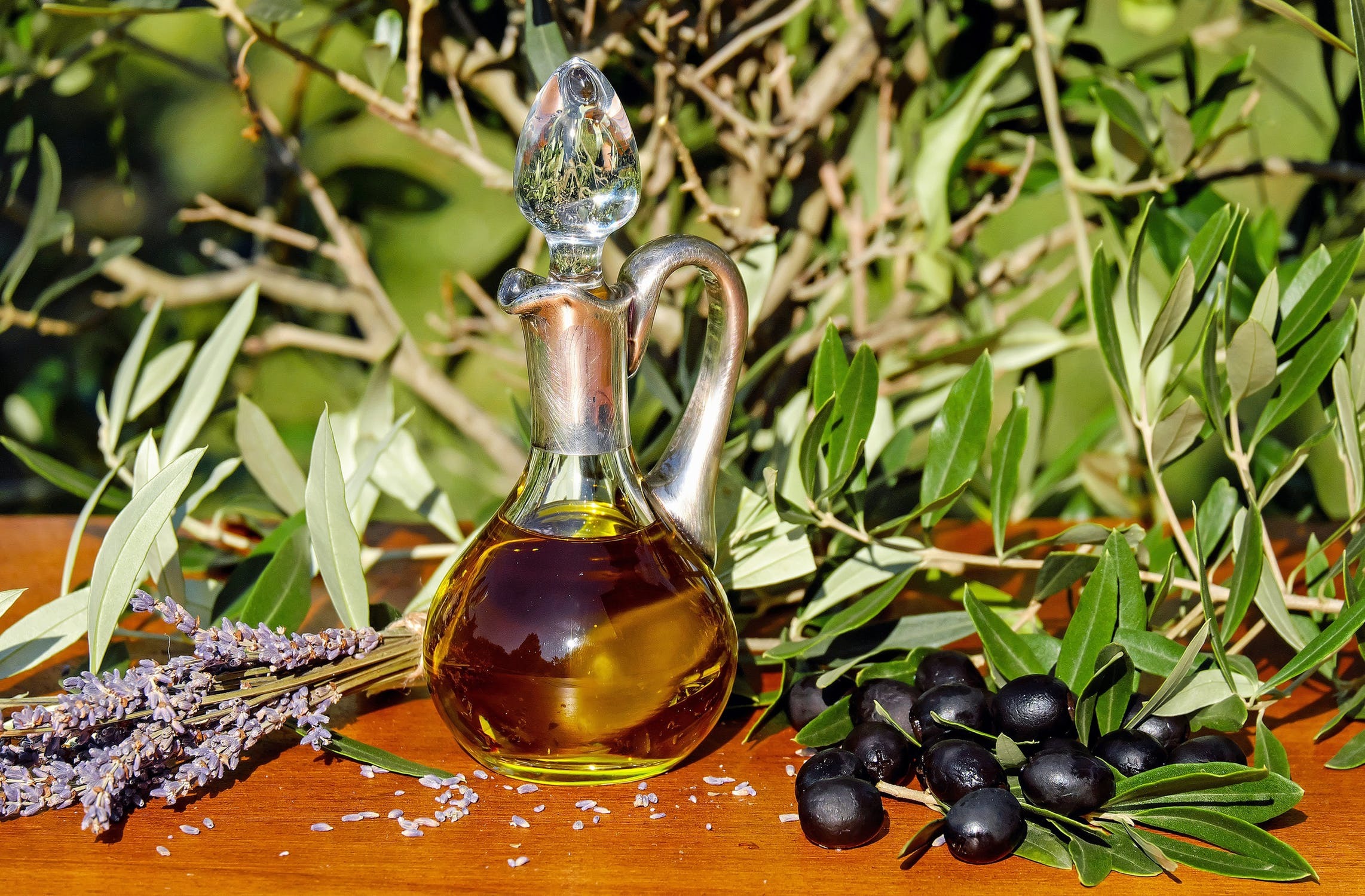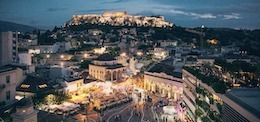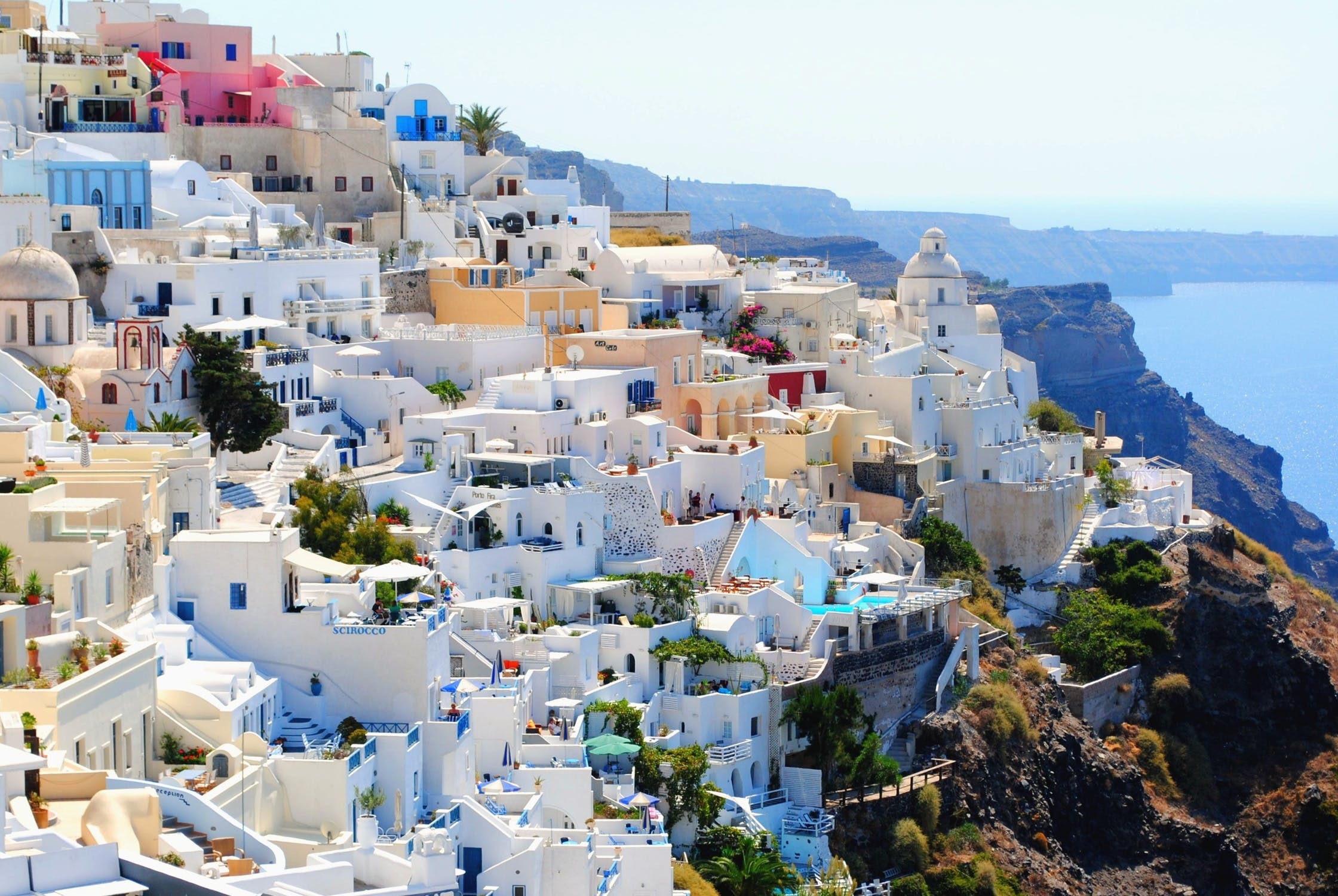Wellness, Rejuvenation & Spiritual Uplifting
With about 800 locations of natural curative resources, most of which are water-related, Greece could be described as a paradise of healing spas. 34 springs have been officially recognized so far, while recognition of another 60 is pending.
Over the last few years, as holistic medicine has once again become a topic of discussion for the scientific community, there has been high interest in developing these springs by creating high-end hydrotherapy facilities and hotels that focus on balneotherapy, not only as a treatment for specific ailments, illnesses and injuries, but also to promote general wellbeing.
The Greeks were among the first to discover the beneficial properties of water. During Homer’s era, Greeks used water for personal hygiene.
They welcomed visitors by serving them water as a gesture of hospitality, and by inviting them to wash in their home tub.
It was Hippocrates (460-370 BC) who established water’s scientific basis. He was the first to study the sources of water and to classify it as potable, saline or sea water, where the “saline” water was actually mineral spring water.
Greek Culture & History
The famous sanctuary of Delphi is located in Phokida, in one of the loveliest and most impressive of Greek landscapes. Its ancient ruins spread out over the southern slopes of Parnassos. Such is the splendor and magnificence of the setting that the visitor is overcome with awe and ecstasy. In this place, with its exceptional terrain, the largest religious centre of ancient Greece was founded and enjoyed unprecedented pre-eminence, the sanctuary of Delphi. Its renown, which spread throughout the Mediterranean world, was due to the presence of the oracle within the sanctuary In the famous Oracle of Delphi, the god’s divination was given through the mouth of Pythia, the High Priestess at Apollo’s Temple. Today the visitor can admire various interesting architectural monuments at Delphi.
SPEND A FEW HEALING HOURS at the Sanctuary of Epidaurus, the most important therapeutic centre of the ancient world, and get an insight into the ancient healing cults of Greek and Roman times. The sanctuary is famous for its principal monuments: the Temple of Asclepius, the Tholos and the Theatre, considered one of the purest masterpieces of Greek architecture.
Acro-Corinth & Ancient Corinth
Acro-Corinth, the acropolis of ancient Corinth, is a monolithic rock overseeing the ancient city of Corinth and one of the most impressive acropoles of mainland Greece. Acro-Corinth was continuously occupied from archaic times to the early 19th century. First it was a Greek acropolis, then a Roman citadel. Later, it became a Byzantine fortress. It was occupied by the Franks in 1210, and then by the rulers of Naples, the Knights of Rhodes, the Turks, the Venetians, and the Turks again and finally it was back to the Greeks. Corinth was once an important city-state and commercial center with an impressive history dating back to 3000BC. The area was destroyed to a great extend by multiple earthquakes and fires through the years causing the modern city of Corinth to be completely rebuilt in a new location. However, a lot still remains from Corinth’s great past.
Culture & Agrotourism
Greece is widely considered to be the cradle of Western culture and democracy. Modern democracies owe a debt to Greek beliefs in government by the people, trial by jury, and equality under the law. The ancient Greeks pioneered in many fields that rely on systematic thought, including biology, geometry, history,philosophy, and physics. They introduced such important literary forms as epic and lyric poetry, history, tragedy, and comedy. In their pursuit of order and proportion, the Greeks created an ideal of beauty that strongly influenced Western art. When visiting Greece , discover firstly the home of ancient civilization: the Acropolis of Athens and the surrounding archaeological sites and then go on to the Temple of Poseidon at Sounion. Continue for ancient Olympia, home of the Olympic Games in antiquity, Delphi, the site of the famous oracle and thought by the ancients to be the navel of the world, or to the ancient theatre at Epidaurus with its pitch-perfect acoustics.
Agrotourism in Greece
Ecology, farming, local gastronomy, local customs, fresh air, peace and warm hospitality are some of the benefits of Agrotourism, the par excellence version of travelling that brings you closer to Mother Earth and her children. Taking part in farm life goes beyond a simple travelling experience. It’s an experience of “come back” to all traditional values. The morphological diversity of Greece and its endless natural resources combined with its unique culture and tradition make up a rare blend of images and experiences where lovers of the authentic will relish the blessings of nature.
Exploring Athens City
Athens, the capital of Greece, the cradle of Western civilization, is a city with the longest history in Europe. It was named after Athena, the goddess of wisdom and knowledge. In the 5th century BC, Athens entered the Golden Age after the end of victorious battles against the Persians (500-449 BC). During the rule of Pericles, its powerful leader, Athens reached the peak of cultural and imperial achievement. Athens is a diverse city. Visitors love walking in the streets of the famous historic triangle of Plaka, Thission and Psyri as well as the old neighborhoods with the well-preserved old mansions. The city is full of small shops, nice restaurants and traditional tavernas. In addition, Syntagma Square, where the House of Parliament and most ministries are, is visited by thousands of people all year round.
Some of the most renowned archaeological sites are: The Acropolis, The Odeion of Herodes Atticus, The Olympian Roman Market, The Panathenaic Stadium and The Temple of Poseidon in Sounio.
Discover the Greek Islands
The islands are the main characteristic of Greece’s morphology and an integral part of the country’s culture and tradition. Greek sovereign land includes 6,000 islands and islets scattered in the Aegean and Ionian Seas, of which only 227 islands are inhabited. This is a truly unique phenomenon for the European continent. The Greek Archipelago takes up 7,500 km of the country’s total 16,000 km coastline, offering a highly diversified landscape: beaches stretching over many kilometers, sheltered bays and coves, sandy beaches with sand-dunes, pebble beaches, coastal caves with steep rocks and dark colored sand typical of volcanic soil and coastal wetlands.
OUR SUGGESTIONS FOR YOUR HOLIDAYS: Mykonos and Santorini- two incredibly beautiful islands in the Cyclades complex of islands. Mykonos has become one of the most popular destinations in Greece. It is famous for its beaches and its nightlife as well as the bars, night clubs and restaurants.
Santorini, however, is mainly well-known for its views, scenery, magic sunsets, wineries and romantic atmosphere. You can visit both on the same trip. If you visit both islands, fly into one, ferry to the other, and fly out of the 2nd island so you don’t have to retrace your steps back to the first island to catch your flight home.
Rhodes, the largest island in the Dodecanese complex , is among the most beautiful and popular Greek islands. The Medieval sightseeing, the amazing views and the clean beaches have made Rhodes world famous. The most important places to visit are The Palace of Grand Master, the Street of the Knights, the old port of Mandraki and Hippocrates Square.
Kefalonia, an island in the Ionian Sea, is a charming and popular tourist place. The mountainous villages, all surrounded by lush greenery, are just beautiful. Byzantine monasteries, breathtaking landscape and amazing beaches complete the picture. In Kefalonia, it’s worth visiting the Sea Lake of Melissani and the Cave of Drogarati with the fantastic stalactites and stalagmites.






